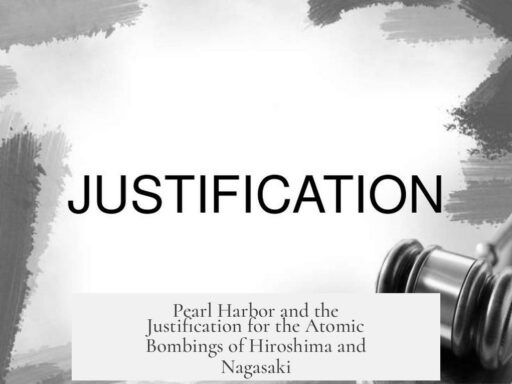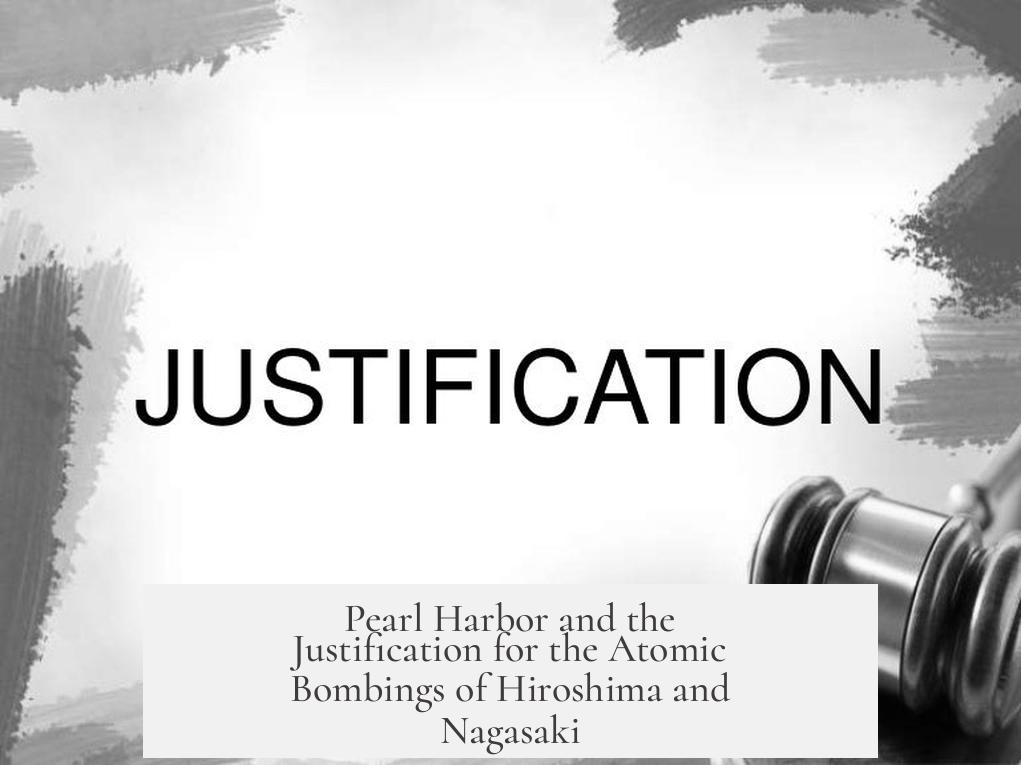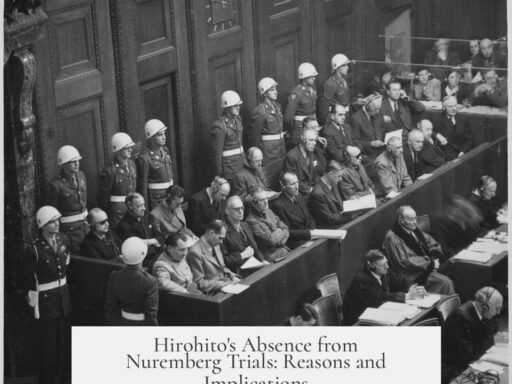The attack on Pearl Harbor alone does not justify the atomic bombings of Hiroshima and Nagasaki. The bombings resulted from multiple strategic, military, and political factors beyond a single event. The decision to use nuclear weapons was primarily to end World War II swiftly and prevent a costly invasion of Japan. Pearl Harbor influenced American sentiment but was not the sole or direct reason for the bombings.
The United States faced a prolonged war in the Pacific by mid-1945. Japan showed no signs of surrender despite heavy conventional bombing and significant military losses. The planned invasion of the Japanese home islands promised a bloody campaign. Military leaders estimated millions of casualties on both sides if the invasion proceeded.
- Truman’s key motivation was to force Japan’s surrender quickly to save lives.
- By August 1945, the devastating effects of the already intense air raids on Japanese cities and the fierce defense at Okinawa highlighted the potential for catastrophic losses.
- Japan’s military tactics increasingly involved civilian mobilization and suicidal attacks, indicating a willingness to fight to the last citizen.
These factors made the bombings an instrument to avoid a drawn-out ground war. The atomic bombs effectively pressured Japan’s leadership, leading to their surrender days after Nagasaki was bombed. This ended the Pacific War months earlier than anticipated.
Other dimensions influenced the decision too. The United States wished to limit Soviet influence in postwar Japan by ending the war before Soviet military involvement expanded. The Manhattan Project represented a massive investment in atomic technology, which policymakers found practical to deploy strategically. The bombings also demonstrated U.S. military power in a rapidly changing geopolitical environment.
However, moral and ethical debates remain intense. Critics argue the atomic bombings targeted civilian populations, causing mass casualties and suffering disproportionate to military necessity. They stress that Tokyo and other cities had already suffered extensive firebombing campaigns that caused high civilian deaths. Thus, retaliating for Pearl Harbor—the attack on a military base—with nuclear weapons on cities is ethically controversial.
Supporters highlight the “lesser evil” argument: using the bomb avoided an invasion that likely would have caused hundreds of thousands more deaths, both civilian and military. The scale of death caused by the bombings, while horrific, was less than would have resulted from continued fighting or further conventional bombings.
Alternative views question whether the bombings were necessary at all. Some military leaders, including General Dwight Eisenhower, believed Japan was already effectively defeated and that applications of atomic weapons were not mandatory to save American lives or end the war. Suggestions include demonstrating the bomb on an unpopulated area or waiting longer for Japan to surrender through diplomatic channels or Soviet advances.
Further complexity arises in comparing the bombings to other wartime atrocities. Strategic bombing plans involving civilian targets occurred on all sides during World War II. The firebombing of Tokyo caused more deaths than the atomic bombs combined. The horrific massacre of civilians in many theaters underlines the brutal nature of total war rather than isolating the atomic bombings as uniquely unjustifiable.
| Aspect | Summary |
|---|---|
| Pearl Harbor | Did not directly justify atomic bombings; influenced overall war sentiment. |
| Main Reason for Bombings | To end war quickly and avoid a deadly invasion of Japan. |
| Japanese Military Strategy | Suicidal tactics and civilian mobilization made prolonged invasion costly. |
| Political Factors | Limit Soviet influence; demonstrate military power; use of Manhattan Project investments. |
| Moral Debate | Ethical concerns about civilian deaths; discussions vary on necessity and proportionality. |
| Alternatives | Possible use of demonstration or waiting for surrender; debate among military leaders. |
In summary, the atomic bombings of Hiroshima and Nagasaki remain subject to complex interpretations. They were not a direct retaliation for Pearl Harbor but a strategic decision anchored in ending a brutal war with minimal further loss of life. Moral judgments vary, with recognition that total war inflicted profound suffering on all sides.
- Pearl Harbor influenced U.S. emotions but did not solely justify atomic bomb use.
- The bombings aimed to end the war and avoid an invasion with heavy casualties.
- Japan’s refusal to surrender and tactics increased anticipated casualties.
- Political goals included limiting Soviet postwar influence.
- Ethical concerns about civilian deaths fuel ongoing debates.
- Alternatives existed but carried uncertain outcomes and risks.
- Total war context explains widespread civilian suffering beyond atomic bombings.
Does the Attack on Pearl Harbor Justify the Atomic Bombings of Hiroshima and Nagasaki?
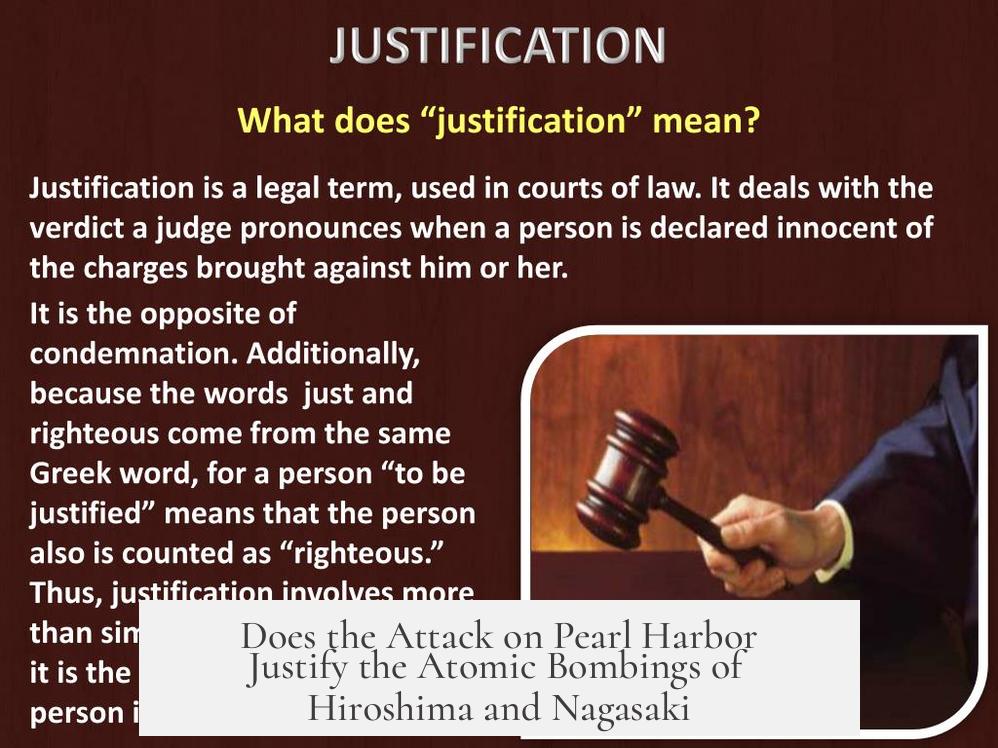
Short answer? No. The attack on Pearl Harbor does not justify the atomic bombings of Hiroshima and Nagasaki on its own. But hold on — is that the whole story? Of course not. Let’s dive deeper.
Picture this: December 7, 1941, the shock of Pearl Harbor, a surprise strike that dragged the U.S. full throttle into World War II. Fast forward to August 1945, and the United States drops atomic bombs on two Japanese cities, effectively ending the war. Was this retaliation for Pearl Harbor? That’s the question often tackled. The answer is complex and multi-layered.
The Pearl Harbor Argument: A One-Note Tune
Many people instinctively connect Pearl Harbor with the atomic bombings. After all, Pearl Harbor was a massive blow to the U.S., resulting in over 2,400 American deaths and crippling the Pacific Fleet.
Yet experts agree, Pearl Harbor alone doesn’t justify dropping nuclear bombs. One classic line states, “You could probably say that Pearl Harbor did NOT factor in at all why they nuked Japan.” The bombs were dropped for reasons far more strategic than revenge. So, Pearl Harbor was an emotional backdrop, maybe a factor, but not the main driver.
One commentator crisply phrased it: “Did Pearl Harbor alone justify it? Of course not. I’m thinking you just didn’t word your question right?” In other words, such a question oversimplifies a very complicated decision.
Ending the War, Avoiding an Invasion: The Real Deal
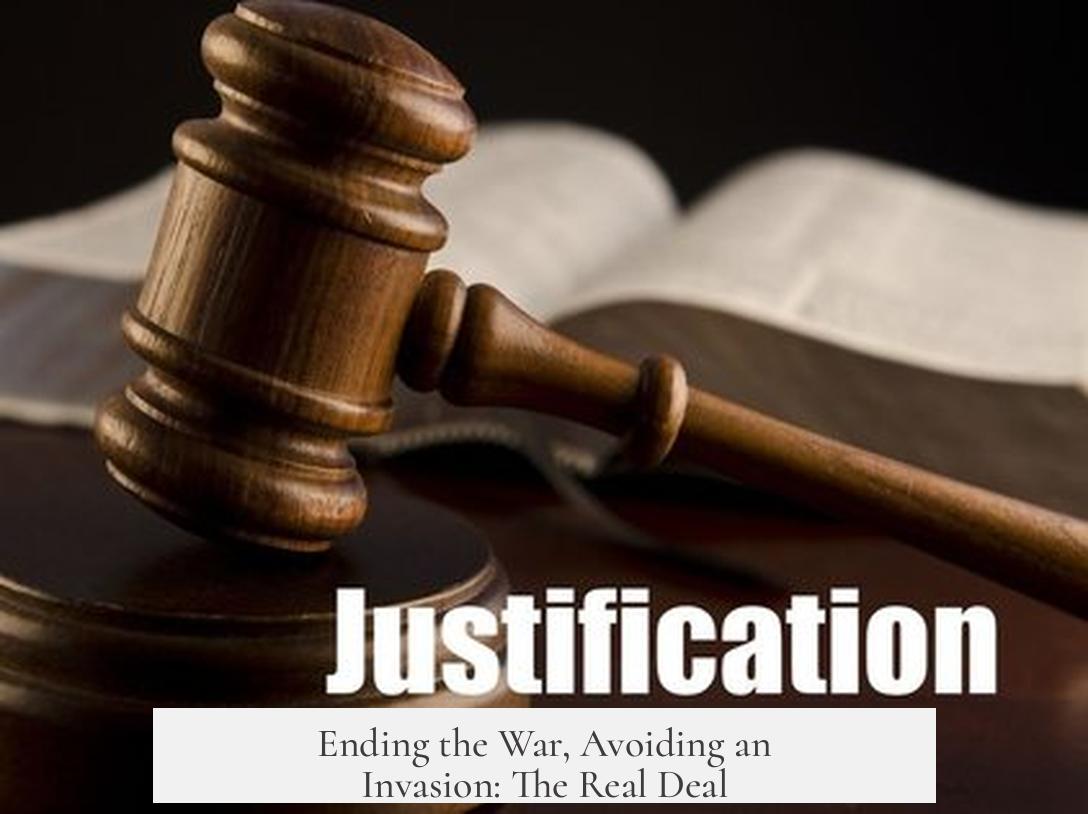
The main reason behind dropping the bombs was to end World War II promptly and avoid a bloody invasion of Japan’s home islands.
President Truman authorized the use of atomic weapons specifically to pressure the Japanese government into surrender. The U.S. feared that a mainland invasion would drag the conflict on for at least another year and cause massive casualties—not just for American soldiers, but also for Japanese soldiers and civilians.
Consider this: the Battle of Okinawa alone caused somewhere between 30,000 and 100,000 civilian deaths. If that’s just one island, how many more lives would have been lost in a full invasion?
The U.S. military calculated that dropping the bombs could save millions of lives by bringing the war to an abrupt close. And the Japanese weren’t passively waiting for defeat. They had no plans to surrender easily, preparing teenagers for suicide missions and fighting until the bitter end. The bombs forced their hand.
The Japanese Military Mindset and Civilian Involvement
The nature of Japan’s military tactics also played a significant role in justifying the bombings for some observers.
By 1942, after the Battle of Midway, it was clear Japan couldn’t win the war conventionally. However, rather than surrendering, Japan adopted extreme tactics—including kamikaze suicide attacks—aimed squarely at causing the maximum possible American casualties.
Japanese civilians were not mere bystanders either. Evidence suggests the populace was highly mobilized, supporting the war effort wholeheartedly. Civilians were integrated into the military machine and expected to fight to the death in case of invasion.
This means the lines between military and civilian targets blurred, especially from a U.S. perspective. The defense of Okinawa showed just how costly a mainland invasion would be.
Other Factors Influencing the Decision to Drop the Bomb
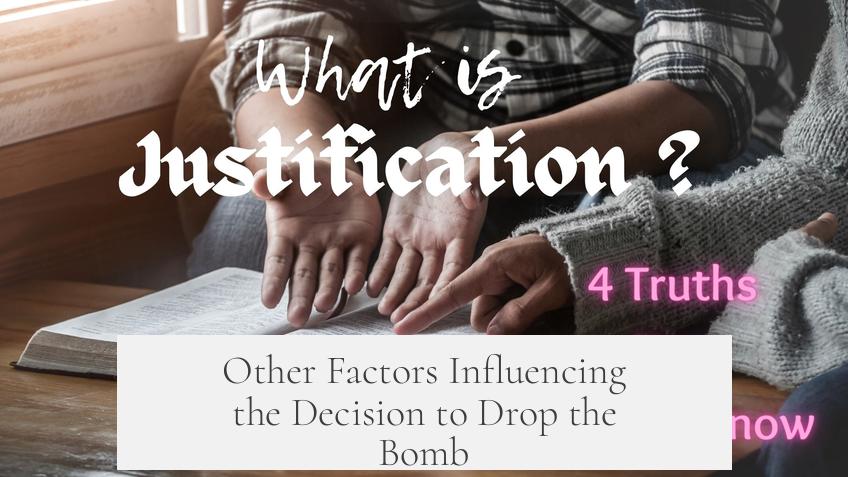
While ending the war was the primary objective, other elements steered the decision to use atomic bombs.
First, there was political calculation. The U.S. wanted to send a powerful message, especially to the Soviet Union. The moment Stalin’s forces invaded Manchuria raised U.S. concerns about Soviet intentions in Asia post-war. Using the bomb showcased American military might, setting the stage for Cold War geopolitics.
Additionally, the Manhattan Project had cost billions, to create and test atomic weapons for practical use. Not using the bomb after such an investment seemed pointless to some policymakers. They viewed it as a way to end the war without risking any more American lives in a ground invasion.
But here is the twist: resentment over Pearl Harbor helped deepen motivation to end the war decisively. Still, it wasn’t the sole reason. As one perspective notes, “We did it because we wanted the war to be done… Pearl Harbor didn’t solely justify it, but it definitely factored in.”
Moral and Ethical Weight: A Heavy Burden
Now let’s pause and ask the critical question: Does the end justify the means? Dropping atomic bombs on civilian populations is morally heavy, to say the least.
Targeting cities of civilians—Hiroshima and Nagasaki—stands apart from attacking military or industrial bases, especially considering earlier firebombing campaigns had already devastated places like Tokyo and Osaka.
Some argue there is no rational moral justification for mass civilian deaths, equating the bombings to other horrific events like the Holocaust or slavery in their sheer destructiveness and suffering.
Others take a more utilitarian approach—choosing the lesser of two evils. Would prolonging the war mean more suffering? Is it better to end it quickly, despite horrific costs?
Such debates still rage in history classes and public discourse, and no definitive moral answer satisfies everyone.
Alternative Views and What Could Have Been

Some big names weighed in with doubts about the necessity of the atomic bombs.
“…I had been conscious of a feeling of depression and so I voiced to him my grave misgivings, first on the basis of my belief that Japan was already defeated and that dropping the bomb was completely unnecessary…” – Dwight Eisenhower
Other alternatives included:
- Conducting a nuclear test explosion on a barren island or military site as a warning.
- Waiting longer for Japan’s potential surrender signals, which some evidence suggests they started exploring as early as May 1945.
- Allowing the Soviet Union’s invasion of Japanese-controlled Manchuria to pressure Japan into surrender.
Had these options been pursued, the war might have ended without the use of nuclear weapons against cities—but these options were dismissed or overlooked in the thick fog of war.
Comparisons with Other World War II Civilian Casualties
To understand the bombings in a broader context, it helps to see what else was happening in World War II.
The U.S. and its allies had already inflicted devastating blows on civilian populations via conventional bombing campaigns. The firebombing of Tokyo killed more civilians than either atomic bomb combined. The Allies bombed German cities like Dresden; the Germans bombed London. The Japanese military committed widespread atrocities killing millions in China.
So, the atomic bombs were part of a grim pattern of total war, where civilian populations bore horrific costs. And ironically, some data suggests the atomic bomb deaths were fewer than other terror campaigns during the conflict.
This doesn’t make the bombings less tragic, but it places them in the broader framework of desperate, brutal wartime decisions.
Wrapping Up: What Really Justified the Atomic Bombings?
So, is the Pearl Harbor attack alone a justification for dropping atomic bombs on Hiroshima and Nagasaki?
No. It’s too simplistic to say Pearl Harbor “justified” the bombings. The bombings were motivated by strategic factors designed to end the war swiftly, avoid a massive invasion, and send strong political signals internationally.
But does that make the bombings acceptable? That’s a personal, moral question, conditioned by your perspective on war, ethics, and historical context.
One clear takeaway: World War II was a crucible of terrible choices, dire consequences, and unprecedented destruction. The atomic bombings sit at the heart of a complex and devastating story—one that can’t be boiled down to a single event, emotion, or justification.
What do you think? Was the atomic bombing an unavoidable step or a tragedy we could have avoided? Feel free to dive into this thorny debate—it’s as alive today as ever.
